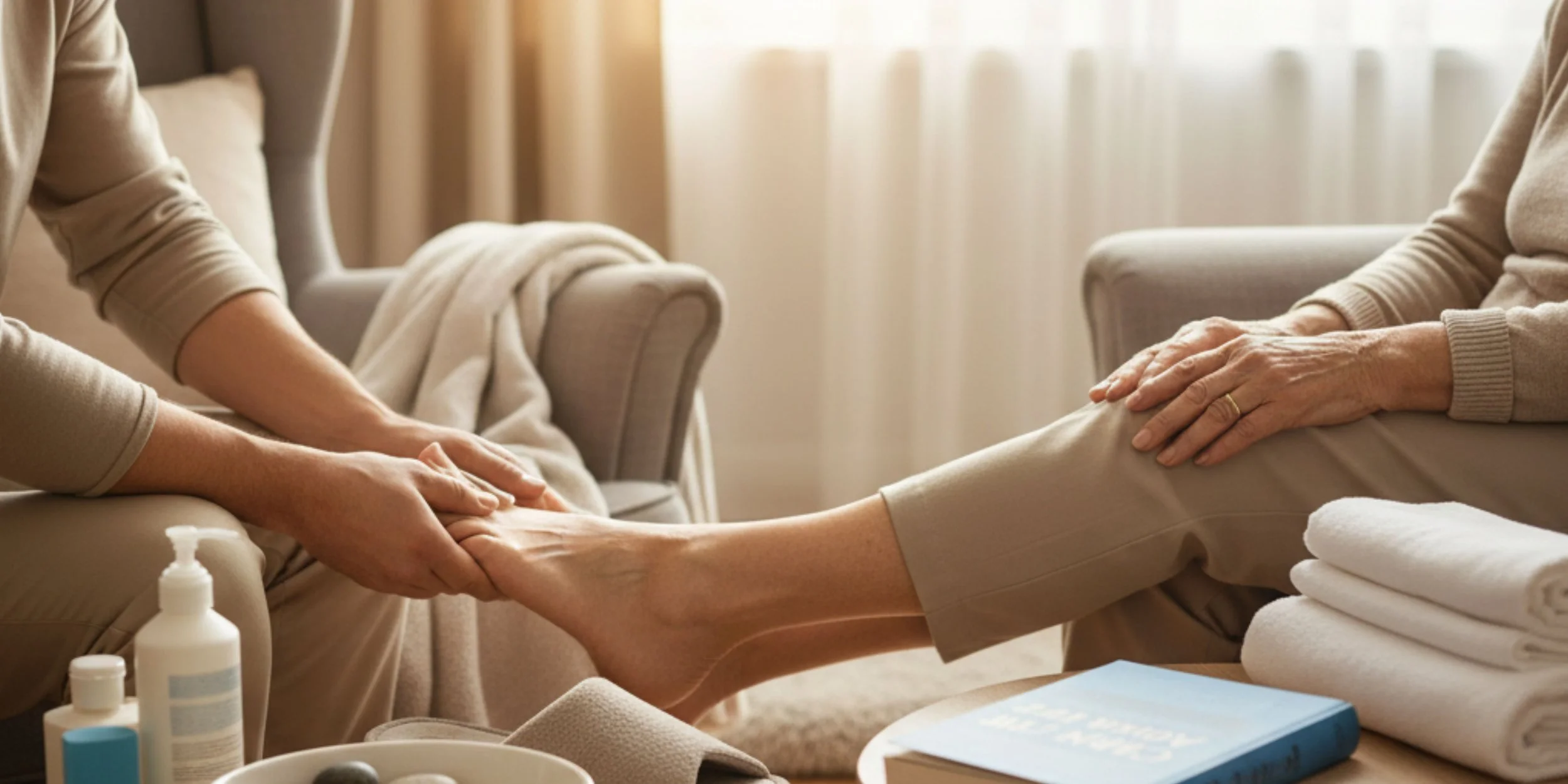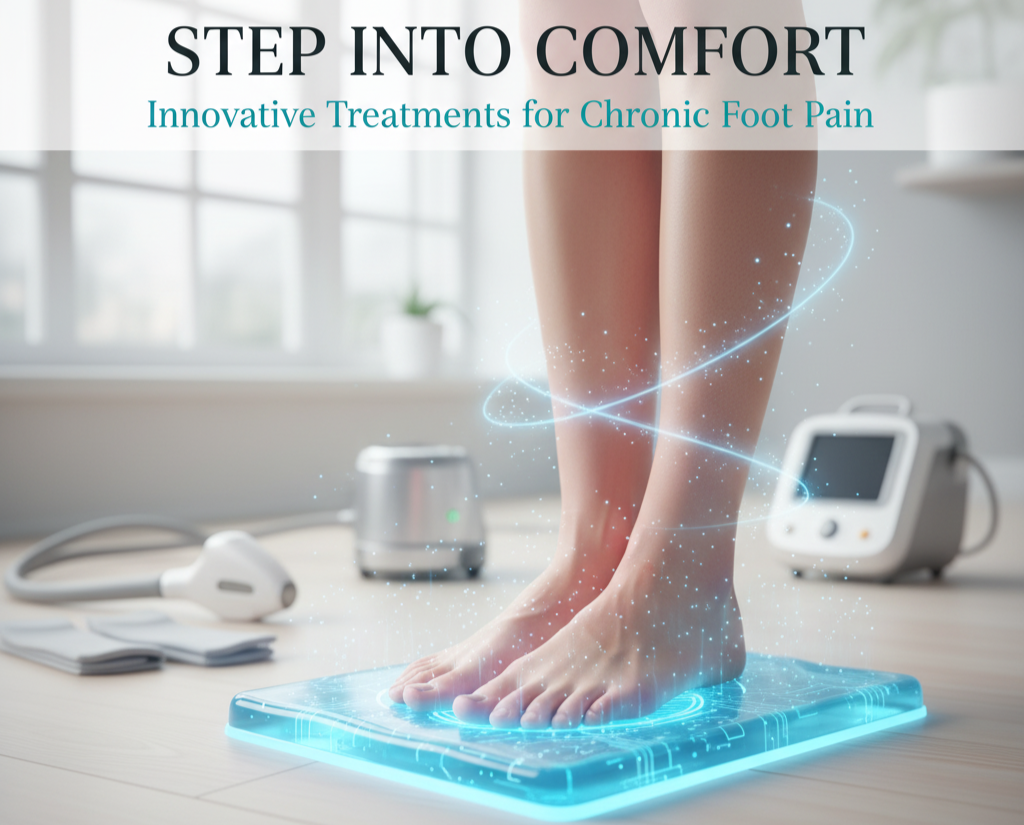Caring for Aging Feet: A Complete Guide for Seniors and Caregivers
As we age, our feet carry not just the weight of our bodies but also a lifetime of experiences. Yet, foot health is often overlooked in senior care—even though it plays a vital role in maintaining balance, mobility, and independence. Healthy feet allow older adults to stay active, enjoy their favorite activities, and reduce the risk of falls or other complications.
This comprehensive guide explores the essentials of foot care for seniors, from understanding age-related changes and common foot problems to daily care routines and caregiver tips. Whether you’re an older adult or a caregiver, these insights can help promote comfort, mobility, and long-term wellness.
Understanding the Importance of Foot Care for Seniors
Our feet endure thousands of steps over a lifetime. As we grow older, natural wear and tear, combined with decreased circulation and thinner skin, make feet more vulnerable to injury and infection. Many seniors experience changes such as:
Loss of fat padding on the soles
Drier skin and brittle toenails
Slower healing due to reduced blood flow
Stiff joints or deformities like bunions or hammertoes
These changes can make walking painful and increase the risk of falls—one of the leading causes of injury among older adults. Proper foot care helps prevent these issues, maintains stability, and supports overall health.
At Pacific Point Podiatry, we often remind patients that healthy feet mean more independence. By identifying and addressing problems early, seniors can continue to move comfortably and safely for years to come.
Common Foot Problems in Aging Adults
Aging feet face unique challenges. Recognizing early signs of trouble helps prevent small issues from turning into major concerns.
Toenail Fungus
Fungal infections are common in older adults due to slower nail growth and decreased immunity. Infected nails may become thick, discolored, or brittle. Professional antifungal treatments—such as laser therapy or ToeFX photodisinfection—can restore nail health safely and effectively.
Corns, Calluses, and Dry Skin
Years of friction and pressure can cause hardened skin or painful corns, especially on bony areas or under the toes. Moisturizing daily and wearing well-fitted shoes help prevent these conditions.
Arthritis
Joint inflammation can cause stiffness, pain, and deformities. Conditions like osteoarthritis or rheumatoid arthritis often affect the toes and midfoot, making walking uncomfortable.
Neuropathy
Nerve damage, especially from diabetes, can lead to numbness, tingling, or burning sensations. Because pain signals are reduced, small cuts or blisters may go unnoticed and become infected.
Poor Circulation
Peripheral artery disease (PAD) is more common in seniors and can delay wound healing. Symptoms may include leg cramps, cold feet, or slow-healing sores.
Foot Deformities
Over time, toes can curl or drift out of alignment. Bunions, hammertoes, and flat feet can cause chronic pain and difficulty wearing shoes.
Each of these conditions benefits from early diagnosis and professional management. A podiatrist can design a personalized care plan to prevent complications and improve comfort.
Daily Foot Care Routine for Seniors
Establishing a gentle, consistent routine is one of the best ways to keep feet healthy. Here’s what to include in a daily foot care checklist:
Wash Feet Daily:
Use warm (not hot) water and mild soap. Dry thoroughly, especially between toes, to prevent fungal growth.Moisturize Regularly:
Apply a fragrance-free lotion or foot cream to keep skin soft and prevent cracking. Avoid putting lotion between toes to reduce moisture buildup.Inspect Feet Daily:
Check for cuts, redness, swelling, or changes in nail color. Use a mirror or ask a caregiver for help if needed.Trim Nails Carefully:
Cut straight across and file rough edges. Avoid digging into corners to prevent ingrown nails.Change Socks Daily:
Choose moisture-wicking, breathable socks to keep feet dry and reduce odor.Keep Feet Warm and Protected:
Avoid walking barefoot to prevent injury. If circulation is poor, wear soft socks even indoors for warmth.
If vision or flexibility makes self-care difficult, professional foot care visits can ensure nails and skin are properly maintained without risk of injury.
Choosing the Right Footwear
The right shoes can make a world of difference for senior foot health. Ill-fitting footwear can cause blisters, bunions, or balance issues, while supportive shoes help prevent falls and pain.
Tips for Choosing Senior-Friendly Shoes:
Proper Fit: There should be about half an inch of space between the longest toe and the shoe tip.
Wide Toe Box: Prevents crowding and pressure on bunions or hammertoes.
Firm Heel Support: Keeps the foot stable and aligned.
Cushioning and Shock Absorption: Reduces impact on joints.
Non-Slip Soles: Essential for safety on smooth or uneven surfaces.
Bonus Tip:
Always shop for shoes later in the day when feet are slightly swollen—this ensures a more accurate fit.
Custom orthotics can also make a big difference. At Pacific Point Podiatry, custom orthotics are designed to correct foot alignment, distribute pressure evenly, and relieve strain on the knees, hips, and spine.
Addressing Foot Pain and Discomfort
Foot pain is not a normal part of aging—it’s a sign that something needs attention. Common causes include overuse, arthritis, nerve irritation, and improper footwear. Ignoring persistent pain can lead to reduced activity, muscle weakness, and even falls.
Simple Steps for Relief:
Rest and elevate feet after activity.
Apply warm or cold compresses depending on the type of pain.
Wear supportive shoes or orthotics to relieve pressure points.
Try gentle stretching to improve flexibility.
If pain lasts more than a few days or interferes with daily life, it’s time to consult a podiatrist. Treatments like laser therapy, shockwave treatment, or regenerative medicine can address pain at its source and promote healing naturally.
The Role of Nutrition in Foot Health
Nutrition plays a surprisingly important role in keeping feet strong and resilient. Healthy circulation, tissue repair, and bone strength all depend on what we eat.
Key Nutrients for Healthy Feet:
Calcium and Vitamin D: Strengthen bones and reduce fracture risk.
Omega-3 Fatty Acids: Found in fish and flaxseeds, these help reduce inflammation.
Vitamin C and Zinc: Support wound healing and collagen production.
Magnesium: Helps with nerve and muscle function.
Hydration Matters:
Dehydration can make skin dry and more prone to cracking. Encourage seniors to drink water throughout the day—especially if they take medications that cause fluid loss.
A balanced diet rich in fruits, vegetables, lean proteins, and whole grains not only supports foot health but also promotes better energy, balance, and healing overall.
When to Seek Professional Help for Foot Issues
Knowing when to seek help is key to preventing complications. Early evaluation by a podiatrist can prevent small issues from becoming serious.
Schedule an Appointment If You Notice:
Persistent pain, swelling, or redness
Thick, discolored, or painful toenails
Open sores or wounds that won’t heal
Numbness, tingling, or loss of sensation
Changes in foot shape or walking pattern
Seniors with diabetes should see a podiatrist at least once a year for a comprehensive foot exam—even if no symptoms are present. Regular visits help detect circulation problems, nerve damage, or infections early on.
At Pacific Point Podiatry, Dr. Tea Nguyen specializes in preventive care, diabetic foot management, and minimally invasive treatments to keep feet healthy and functional.
Tips for Caregivers: Supporting Foot Care for Seniors
Caregivers play a crucial role in maintaining a senior’s foot health. Because some older adults may have limited mobility, poor vision, or cognitive changes, caregivers often become the first line of defense in spotting problems.
Practical Tips for Caregivers:
Assist with daily foot checks: Look for cuts, blisters, or color changes.
Encourage clean, dry feet: Remind your loved one to wash and dry their feet daily.
Promote comfortable footwear: Check that shoes fit properly and aren’t worn down.
Help with nail care: If trimming nails is difficult, schedule professional care.
Encourage gentle exercise: Simple foot movements and walking improve circulation.
Coordinate care: Share concerns with healthcare providers or podiatrists promptly.
Caregivers can also accompany seniors to podiatry appointments, ensuring treatment recommendations are followed at home. Supporting foot health is an act of love—it helps older adults maintain confidence, comfort, and mobility.
Exercises and Stretches for Healthy Feet
Regular exercise keeps the muscles, tendons, and ligaments in the feet flexible and strong. Even gentle movements can make a big difference in balance and circulation.
Simple Foot Exercises for Seniors:
Toe Curls: Pick up a small towel or marbles with your toes to strengthen foot muscles.
Ankle Circles: Gently rotate ankles clockwise and counterclockwise to improve mobility.
Heel Raises: Hold onto a chair, lift heels off the ground, and slowly lower them.
Toe Stretch: Sit and pull your toes back gently to stretch the arch of the foot.
Seated Foot Massage: Roll the foot over a tennis ball to ease tension.
Aim for a few minutes of foot exercise each day. Combined with supportive shoes and proper care, these movements can greatly improve comfort and reduce stiffness.
Conclusion: Promoting Foot Health in Aging Adults
Caring for aging feet isn’t just about hygiene—it’s about preserving independence, confidence, and quality of life. Small daily habits, paired with professional care, can prevent complications and help seniors stay active and pain-free.
Whether you’re a senior looking to improve your own foot health or a caregiver supporting a loved one, remember: foot care is self-care.
At Pacific Point Podiatry, we’re committed to helping older adults move comfortably through every stage of life. From routine nail care and diabetic foot exams to advanced treatments for pain, fungus, or deformities, our holistic approach ensures your feet get the care they deserve.











